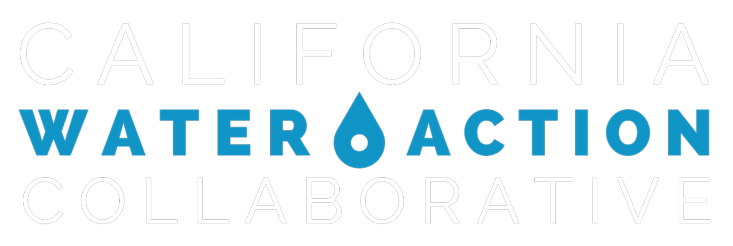Source: Cultivating a Healthy Food System
In California, extended droughts, increasing heat, decreasing snowpack, and overdrafting of groundwater aquifers are all increasing risks and costs to agriculture. This includes crop loss as well as adverse effects on ecosystems and biodiversity. Excess nitrogen fertilizers and pesticides also threaten water quality. Building water resilience is essential. Agriculture, including food and beverage companies and their supply chains, must address these costs and risks with innovative solutions that solve multiple problems simultaneously. Regenerative agriculture and related resource-efficient practices is one such approach with considerable promise. It does so in part by helping nature and biological processes do more of the work in building soil health and water resilience, while also generating other ecological, climate, and social benefits.
This project seeks to 1) better understand effective combinations of agronomic practices, rather than singular ones, to achieve on-farm benefits, including farmer profitability, 2) identify ways to estimate and measure beneficial outcomes previously under valued, and 3) pilot ways to support effective and accelerated farmer transitions, especially for medium and large farms in the San Joaquin Valley (where they receive only 5 -16 inches of rain /yr).
A regenerative agriculture approach tends to include principles that are flexibly applied to meet the specific needs of each farm and crop to achieve a range of healthier outcomes. Practices tend to include cover cropping, crop diversity, soil protection/minimal disturbance, compost and manures, highly efficient water use, and finding ways to work with nature to build biodiversity in and above the soil. Practices often reduce inputs (e.g., nitrogen, pesticides, water) and improve farmer profitability.
Using less fertilizers and water leaves more for the ecosystem and improves water quality for drinking, and makes the soil better for on-farm groundwater recharge. A healthy soil also absorbs and sequesters more carbon dioxide than it emits, mitigating climate change.
General Mills and others are leading a new project with other CWAC members to define and develop regenerative solutions. Partners include The Nature Conservancy, Sustainable Conservation, American Farmland Trust, Olam, Bowles Farm, Ag Capital, others, and outside partners like UC Davis, the Ecdysis Foundation, and the Ecosystem Services Marketplace Consortium. The project will begin with an initial focus on almond crops given its potential for positive change. Given the complexity and challenges to large-scale change, CWAC partners will also coordinate and collaborate with parallel efforts to minimize unproductive duplication of efforts and develop a more collective-impact approach where parties complement and build upon each others’ efforts.
Partners will conduct social and on-farm research to track water outcomes of regenerative agriculture approaches and better understand hydrologic health, and make linkages to holistic co-benefits such as soil health, habitat and ecosystems, air quality, and community health and well-being. Through technical assistance, peer-to-peer learning, and incentives, the project aims to show cost savings and ways to mitigate new costs and risks associated with transitioning to regenerative agriculture. The project will test and scale both farmer transition support practices in the San Joaquin Valley and markets for regeneratively-grown agricultural commodities that create a virtuous cycle of supply and demand throughout the value chain. General Mills has begun research with 30 on-farm projects to better understand the outcomes of early adopters on water, soil health, yield, profitability, biodiversity, tree health, and more. Sustainable Conservation has conducted research with dozen farmers, researchers, and farm advisors on barriers to adoption.
Project co-leads: General Mills and Ag Innovations
Participating CWAC members: Ag Capital | American Farmland Trust | Bowles Farm | Olam | Sustainable Conservation | The Nature Conservancy |
Additional partners: UC Davis, Ecdysis Foundation, ESMC
To learn more: Contact Margot Conover, Senior Sustainability Analyst, General Mills – [Margot.Conover@genmills.com]

